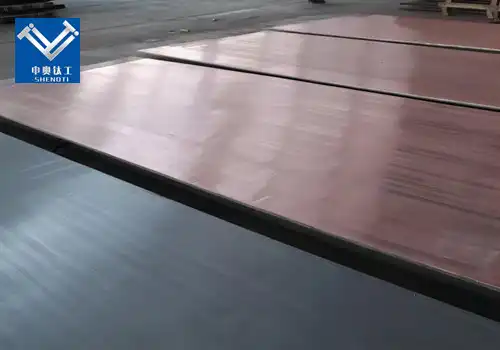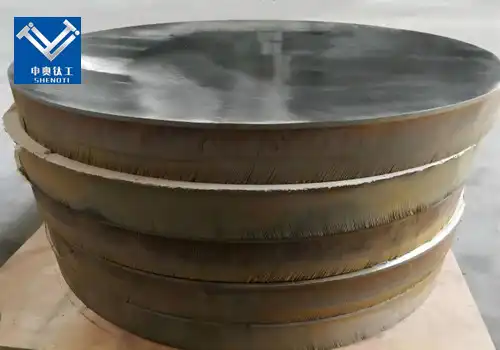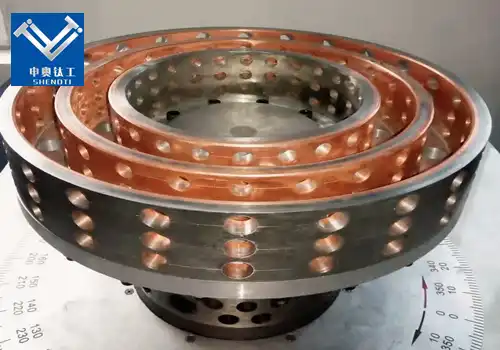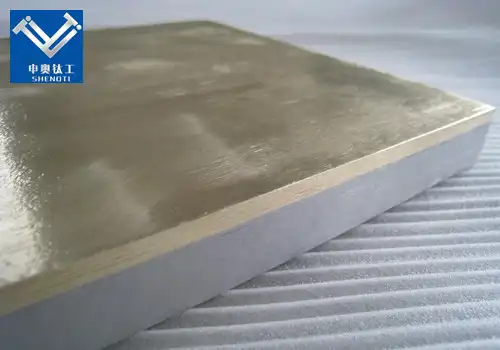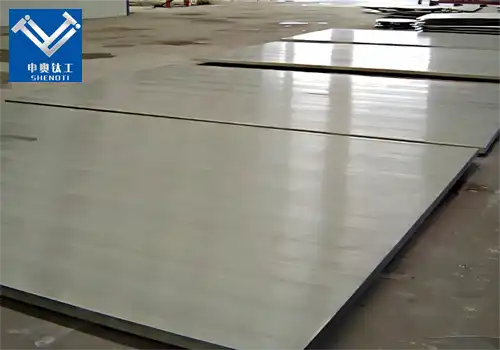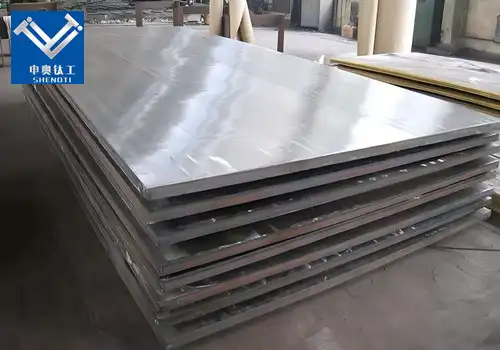
Key Applications of Nickel-Based Alloy Composite Plate
2025-07-12 14:54:11
What Is a Nickel-Based Alloy Composite Plate?
Nickel-based alloy composite plate is a high-performance bimetallic or multilayer metal material, typically composed of a nickel-based alloy layer metallurgically bonded to a structural base layer such as carbon steel, stainless steel, or other substrate metals. It combines the corrosion resistance, heat resistance, and mechanical strength of nickel alloys with the cost-efficiency and strength of the base material.
Why Choose Nickel-Based Alloy Composite Plate?
1: Corrosion Resistance
Nickel-based alloys such as Inconel, Hastelloy, and Monel are renowned for their ability to resist aggressive chemicals including hydrochloric acid, sulfuric acid, and seawater. By using a nickel-based alloy composite plate, engineers can maintain corrosion resistance while reducing overall material costs.
2: Superior High-Temperature Performance
Nickel-based alloy composite plates retain strength and structural integrity even at elevated temperatures above 700°C. This makes them ideal for heat exchangers, reactors, furnaces, and other high-temperature industrial equipment.
3: Excellent Mechanical and Metallurgical Bonding
Through advanced bonding techniques like explosion welding, hot rolling, and diffusion bonding, these composite plates exhibit strong adhesion and no delamination under stress or thermal cycling.
Key Applications of Nickel-Based Alloy Composite Plate
1: Chemical and Petrochemical Industry
In the chemical and petrochemical industries, corrosion from aggressive media such as hydrochloric acid, chlorine, and caustic soda is common. Nickel-based alloy composite plates are widely used in:
Pressure vessels
Heat exchangers
Reactor towers
Lined piping systems
Nickel-based alloy composite plates effectively prolong equipment life while maintaining process integrity.
2: Oil and Gas Industry
In offshore drilling platforms, subsea pipelines, and sour gas applications, corrosion and high pressure are serious concerns. Nickel-based alloy composite plate is used to:
Resist hydrogen sulfide (H₂S) stress corrosion cracking
Withstand high-pressure environments
Reduce maintenance frequency and downtime
3: Power Generation and Nuclear Industry
Nickel-based alloy composite plates are used in:
Nuclear fuel reprocessing systems
Steam generators
Turbine exhaust structures
Thanks to their radiation tolerance and oxidation resistance, they ensure long service life in nuclear and thermal power plants.
4: Marine and Shipbuilding Sector
The marine environment is highly corrosive due to the presence of salt water and biofouling. Nickel-based alloy composite plates are applied in:
Desalination systems
Ship hull cladding
Offshore platform components
Their resistance to pitting, crevice, and stress corrosion makes them an excellent material of choice.
Common Nickel-Based Alloy Grades Used in Composite Plates
|
Alloy Type |
Features |
Typical Applications |
|
Inconel 625 |
High strength, seawater resistance |
Marine systems, aerospace |
|
Hastelloy C276 |
Broad-spectrum corrosion resistance |
Chemical reactors, flue gas scrubbers |
|
Monel 400 |
Excellent resistance to seawater and acids |
Piping systems, seawater pumps |
|
Incoloy 825 |
Oxidation and acid resistance |
Heat exchangers, nuclear fuel handling |
Manufacturing Technology of Nickel-Based Alloy Composite Plate
1: Explosion Welding
Explosion welding is a solid-state process that bonds dissimilar metals using a controlled detonation. It creates an ultra-strong metallurgical bond without melting the materials.
Advantages:
Minimal intermetallic formation
High bond strength
Suitable for large-area cladding
2: Hot Rolling Bonding
This method involves placing the nickel alloy sheet and base plate together under high temperature and rolling pressure, allowing diffusion to occur at the interface.
Key Benefits:
Excellent surface finish
Strong metallurgical bond
Ideal for thin-layer applications
Quality Standards and Certifications
Nickel-based alloy composite plates are typically manufactured according to the following standards:
ASME SB-424 / SB-127
ASTM B443 / B575
EN 13445 / ISO 6208
GB/T 8165 / GB/T 13148
Manufacturers also perform non-destructive testing (NDT), ultrasonic testing, and shear strength testing to ensure product integrity.
How to Select the Right Nickel-Based Alloy Composite Plate
When selecting the ideal plate for your application, consider:
Corrosive environment: What type of chemical exposure is involved?
Operating temperature and pressure
Mechanical load and stress resistance
Weldability and fabrication compatibility
Budget and lifecycle expectations
A qualified materials engineer or supplier can help recommend the most suitable grade and composite structure.
Trusted Supplier of Nickel-Based Alloy Composite Plates
As a professional supplier of Nickel-based alloy composite plate, we offer:
Custom thickness and dimensions
Reliable bonding techniques (explosion welding, hot rolling)
Rapid delivery and full material traceability
Expert engineering support for your project
Our products are widely used in chemical, marine, oil & gas, and nuclear industries, ensuring durability and long-term performance in demanding environments.
Contact Us for Your Nickel-Based Alloy Composite Plate Needs
Are you looking for high-quality, cost-effective nickel-based alloy composite plates for your project?
Email us: zh@baojiti.com.cn
Visit our website: shenaocladplate.com
Get technical advice and quotations from our expert team today.
Partner with a reliable metal composite specialist – choose premium nickel-based alloy composite plates for long-lasting industrial performance.
YOU MAY LIKE











